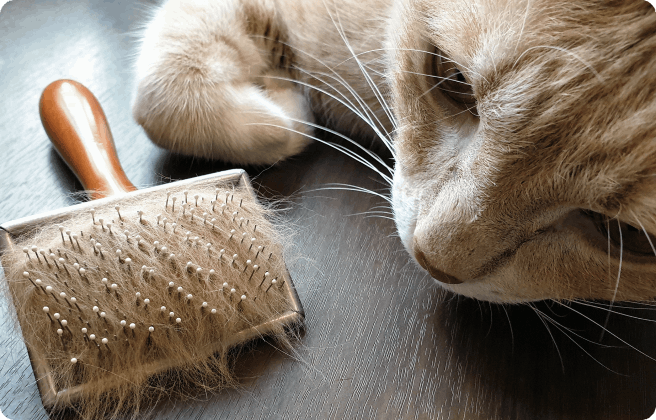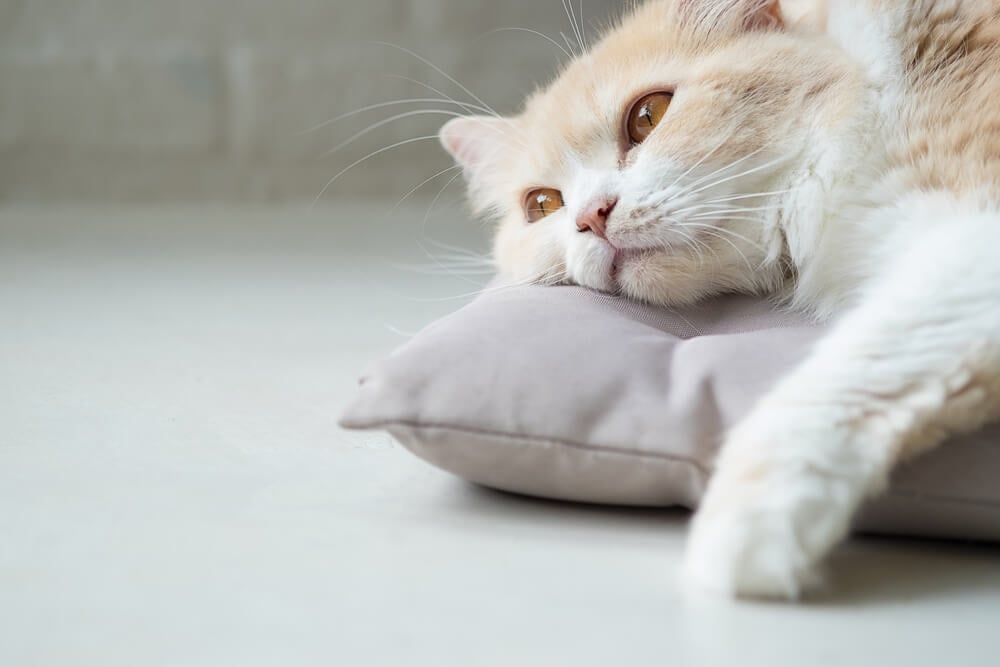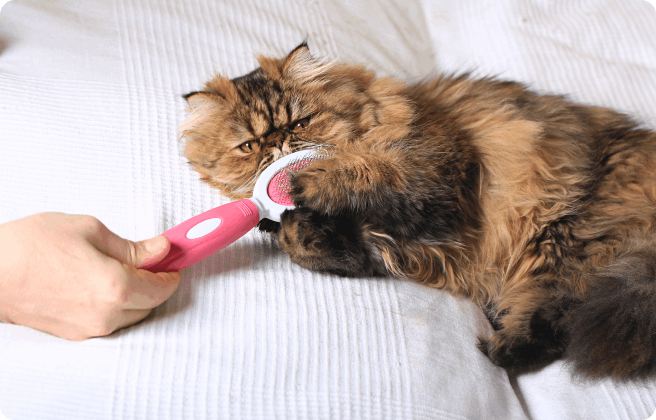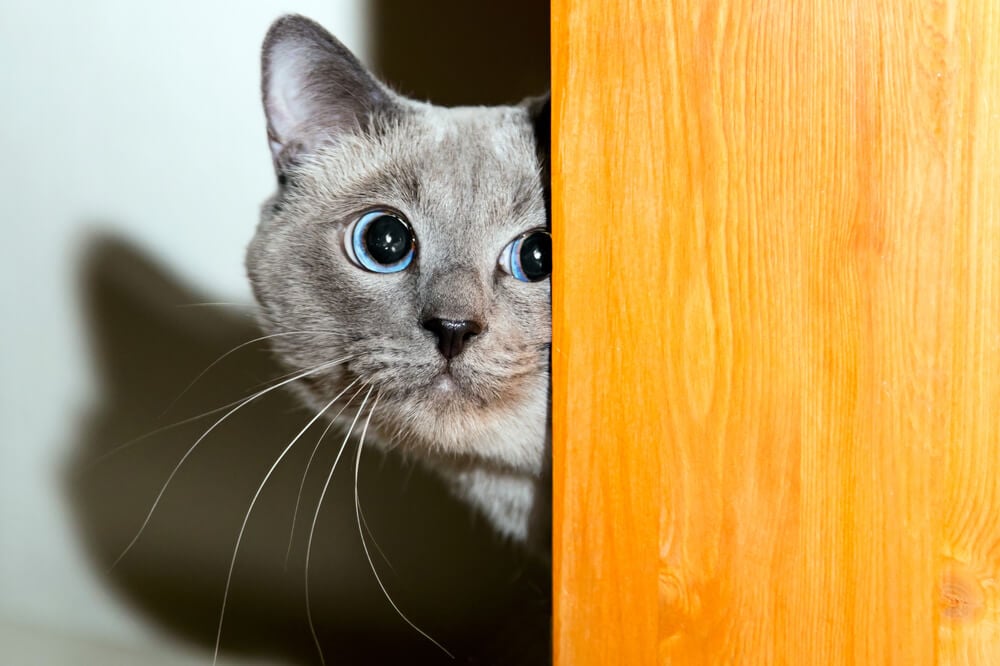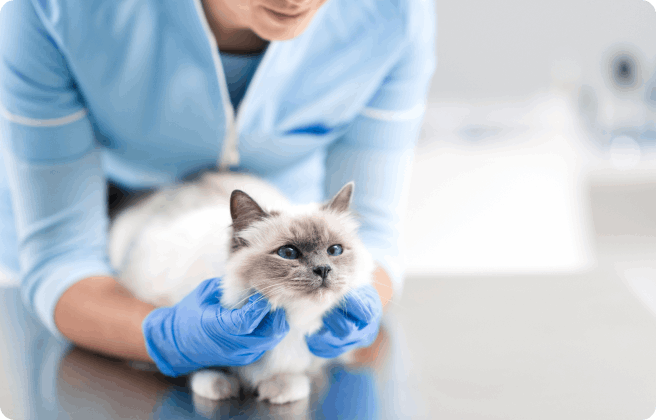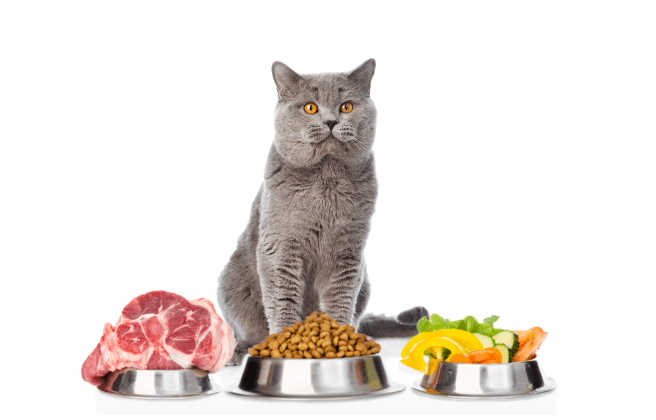
Being obligate carnivores, cats need meat to survive and thrive, but that doesn’t necessarily mean it has to be cooked and processed. Cat parents thinking of putting their cats on a raw diet should know it can be a healthy regimen to follow, but there are quite a few things that need to be considered before embarking upon this choice.
What is a raw diet?
Although it can feel like raw diets are a recent phenomenon, there’s a long history of people who have sung the health benefits of eating only uncooked and unprocessed food, whether that’s to follow the lifestyles of ancestors or be more in tune with nature.
In some ways, you might believe your cat to be the ideal candidate for a raw diet. If you’ve caught them in the act of hunting birds or rodents out in the backyard, you’ll be able to attest that even the most domesticated of cats still retain their predatory instincts.
What does a raw diet look like for a cat?
Proponents of a raw diet argue that feeding cats unprocessed meat is a more natural choice for a carnivore. Some people take this to the extreme and prepare meals at home with meat bought from the local butcher, especially those that adhere to the BARF philosophy. This stands for either Bones and Raw Food or Biologically Appropriate Raw Food, and recommends a diet heavy in meat, bones and organs.
This involves a lot more effort than simply opening up a can or a pouch so understandably, others will plump for commercially available raw food instead — many of which are approved by The Association of American Feed Control Officials (AAFCO), a professional body dedicated to regulating the output of the pet food industry.
How can I give my cat a raw diet safely?
If cat parents are seriously considering giving their pets a raw diet, there are several things to take into consideration. First of all, it’s integral that cats get all the vitamins and nutrients they need to function properly. This is why processed cat food contains so many ingredients other than meat alone and this approach is recommended by vets the world over.
You might therefore have to add supplements to your cat’s raw food diet to ensure they aren’t low on certain substances — taurine and calcium deficiencies can leave your cat with a nasty range of side effects, from eye problems and bad teeth to cardiovascular issues.
Is a raw diet right for my cat?
It’s also well worth consulting a vet before making the changeover. Your cat might have health problems that would make a raw food diet unsuitable, partly because there’s an increased risk of being exposed to harmful pathogens, such as salmonella and E.Coli, from raw meat — this could pose a risk to immunocompromised cats, as well as those who are very young or very old.
The pros and cons of a raw diet for cats
As we have explained, feeding a cat a raw diet can offer benefits but there are potential drawbacks too. Here are some pros and cons of a raw diet in cats at a glance:
Pros:
- Natural diet: Supporters of raw diets argue that they mimic a cat’s natural diet in the wild, which primarily consists of raw meat. Advocates believe that feeding cats a raw diet can provide them with a more species-appropriate and biologically suitable nutrition.
- Nutritional control: Preparing a raw diet at home allows you to have direct control over the ingredients and their quality. It enables you to choose high-quality meats, organs, and potentially include other beneficial ingredients like bone or supplements. This can potentially lead to a more balanced and customized diet for your cat’s specific needs.
- Improved coat and dental health: Some proponents claim that feeding a raw diet can result in a healthier and shinier coat in cats. Chewing on raw meat and bones may also help maintain dental health by naturally cleaning the teeth and reducing plaque and tartar buildup.
Cons:
- Nutritional imbalances: Formulating a nutritionally balanced raw diet for cats is complex and challenging. Cats have specific nutrient requirements that must be met, including taurine, arachidonic acid, and essential vitamins and minerals. Failure to provide a balanced diet can lead to nutritional deficiencies or imbalances that can have serious health consequences.
- Foodborne illnesses: Raw meat, including poultry and fish, carries a risk of bacterial contamination such as Salmonella or Campylobacter. Cats can become sick from ingesting contaminated raw meat, and these bacterial pathogens can also pose a risk to human health, particularly to vulnerable individuals like children, the elderly, or those with compromised immune systems.
- Zoonotic diseases: Raw diets can increase the risk of zoonotic diseases, which are infections that can be transmitted from animals to humans. These include parasites like Toxoplasma gondii and internal parasites like tapeworms. Proper handling, storage, and hygiene practices are crucial to minimize the risk of zoonotic infections.
- Cost and convenience: Preparing or purchasing a raw diet can be more expensive and time-consuming compared to commercial cat foods. It requires careful sourcing of high-quality ingredients, potential need for supplements, and proper food handling and preparation to ensure safety.
- Feeding guidelines and veterinary oversight: Creating and maintaining a balanced raw diet for cats requires in-depth knowledge of feline nutrition. Without proper guidance and oversight from a veterinarian experienced in raw feeding, there is a risk of unintentional nutritional deficiencies or imbalances that can harm your cat’s health.
I’m still unsure…
Just as in humans, a raw diet is ultimately a personal choice and not necessarily bad for you when done correctly. Parents still on the fence about the idea should be aware no studies have proved a raw diet to be any healthier or better for a cat than more conventional prepared recipes — in fact, some err on the side of caution due to the potential risk of disease that comes with uncooked food.
If you think it’s the right thing for your cat, you need to do it responsibly, which requires you to match the level of oversight cat food manufacturers and regulatory bodies carry out to ensure your cat’s receiving all the vital vitamins and nutrients they need, while also keeping food free from unsafe microorganisms.
Ultimately, giving a cat an insubstantial diet is inexcusable, so cat parents need to do lots of research and regularly check in with their vet to make sure their cat is just as healthy as they would be dining on processed food.
Consult the professionals
Before starting a raw diet for your cat, it’s crucial to consult with a veterinarian knowledgeable in feline nutrition. They can assess your cat’s specific needs, guide you on formulating a nutritionally balanced raw diet, and provide recommendations based on your cat’s age, health condition, and individual requirements. Regular veterinary check-ups and monitoring are essential to ensure your cat’s well-being on a raw diet.
We uphold the highest editorial standards when creating the authoritative content pet parents rely on and trust.
Every piece of clinical content on the Cat Food Advisor is reviewed by our certified Veterinary Advisory Board, which consists of licensed veterinarians and medically certified specialists.
Our reviews are completely independent; we are not paid by any pet food company to promote their products favorably. We do not accept money, gifts, samples or other incentives in exchange for special consideration. For more information see our Disclaimer & Disclosure page.




